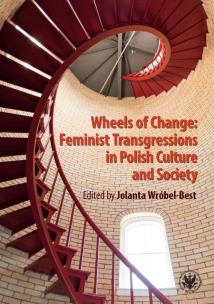- Regulamin
- Koszty dostawy
- Kontakt
- Dziś w ofercie 236 025 produktów
KSIĄŻKI
- Albumy
- Beletrystyka
- Biografie
- Dla dzieci i młodzieży
- Edukacja
- Ekonomia i biznes
- Ezoteryka
- Historia
- Informatyka
- Kalendarze
- Komiksy
- Kryminał i sensacja
- Kultura i sztuka
- Literatura faktu
- Literatura kobieca
- Literatura piękna
- Medycyna
- Nauka języków obcych
- Nauki humanistyczne
- Nauki przyrodnicze
- Nauki ścisłe
- Podręczniki
- Poradniki
- Prawo i administracja
- Przewodniki i podróże
- Psychologia
- Religia
- Sport
- Technika
- Zdrowie i uroda
ZABAWKI
- Artykuły dla niemowląt
- Bączki
- Bujaki i skoczki
- Ciągnij / pchaj
- Dla niemowlaka
- Grzechotki i gryzaki
- Karuzele i pozytywki
- Maty i centra zabaw
- Projektory i lampki
- Sortery i piramidki
- Zabawki
- Edukacyjne i kreatywne
- Figurki
- Klocki
- Lalki
- Pojazdy
- Pluszaki i maskotki
- Sport i rekreacja
- Zabawa w dom
- Zabawki drewniane
- Puzzle
- Do 200 elementów
- 201-500 elementów
- 501-1000 elementów
- Ponad 1000 elementów
- Puzzle 3D
ART. PAP
- Artykuły biurowe
- Artykuły piśmiennicze
- Bloczki i kartki samoprzylepne
- Dziurkacze
- Kalkulatory
- Nożyczki i nożyki
- Skoroszyty
- Teczki
- Wizytowniki
- Zszywacze
- Artykuły szkolne
- Akcesoria szkolne
- Modelowanie
- Notatniki i zeszyty
- Piórniki
- Plecaki i torby
- Pojemniki na śniadanie
- Pomoce naukowe
- Przybory matematyczne
- Przybory rysunkowe
- Upominki i gadżety
- Akcesoria do książek
- Artykuły balowe
- Breloki i zawieszki
- Drobiazgi, różności
- Kubki
- Oferta Świąteczna
- Papeteria, kartki i naklejki
- Skarpetki Many Mornings
- Upominki
GRY
MULTIMEDIA
- Audiobooki
- Beletrystyka
- Biografie i wspomnienia
- Dla dzieci i młodzieży
- Fantastyka
- Filozofia i religia
- Historia
- Literatura faktu i reportaż
- Poradniki
- Sensacja i kryminał
- Filmy DVD/BD
- Animowane
- Biograficzne
- Fantasy
- Horrory
- Komedie
- Romanse
- Science Fiction
- Sensacyjne / kino akcji
- Thrillery
- Muzyka CD
- Alternatywna
- Blues
- Dla dzieci
- Jazz
- Klasyczna
- Piosenka aktorska i poetycka
- Pop
- Rock
- Świąteczna i kolędy
- Akcesoria GSM
- Głośniki
- Kable i adaptery
- Klawiatury
- Myszy
- Słuchawki
PROMOCJE
ZDROWIE
LEGO

Wheels of Change Feminist Transgressions in Polish Culture and Society
Autor: Wróbel-Best Jolanta
ISBN:
9788323549406
EAN:
9788323549406
oprawa:
miękka
format:
210x145mm
język:
angielski
liczba stron:
242
rok wydania:
2021
(0) Sprawdź recenzje
Opis produktu
Zasady bezpieczeństwa
Using rich and varied narrative images and resources, literary artworks, excerpts from philosophical and sociological writings, musicological theories and film studies, historical documents, and other materials, this collection of essays strongly sides with the feminist theory. All chapters tirelessly construct feminist discourse by depicting a new reality, language, and values to assess as well as understand the life, goals, and social achievements of women over a span of centuries in Polish culture and society. Feminist transgression is envisioned as a thematic category bridging diverse, seemingly loose, distant, and even apparently contradictory women's accounts. This theme develops a cohesiveness among chapters and provides an underlying unity, built on the coincidence of opposites, known in Latin as the principle of coincidentia oppositorum. Even if the dialogue among chapters may be perceived on the surface as difficult, the volume's parts communicate deeply with each other by narrating, detailing, elaborating, and enlarging in space and time the presented dynamics of women's transgressions. Transgression thus creates a special form of debate.
CENA:
22,66
zł
Cena detaliczna:
32,00 zł
29%
rabatu
Najniższa cena z ostatnich 30 dni: 22,73 zł
Produkt niedostępny
Uwaga!!!
Ten produkt jest zapowiedzią. Realizacja Twojego zamówienia ulegnie przez to wydłużeniu do czasu premiery tej pozycji. Czy chcesz dodać ten produkt do koszyka?


Wybierz wariant produktu
